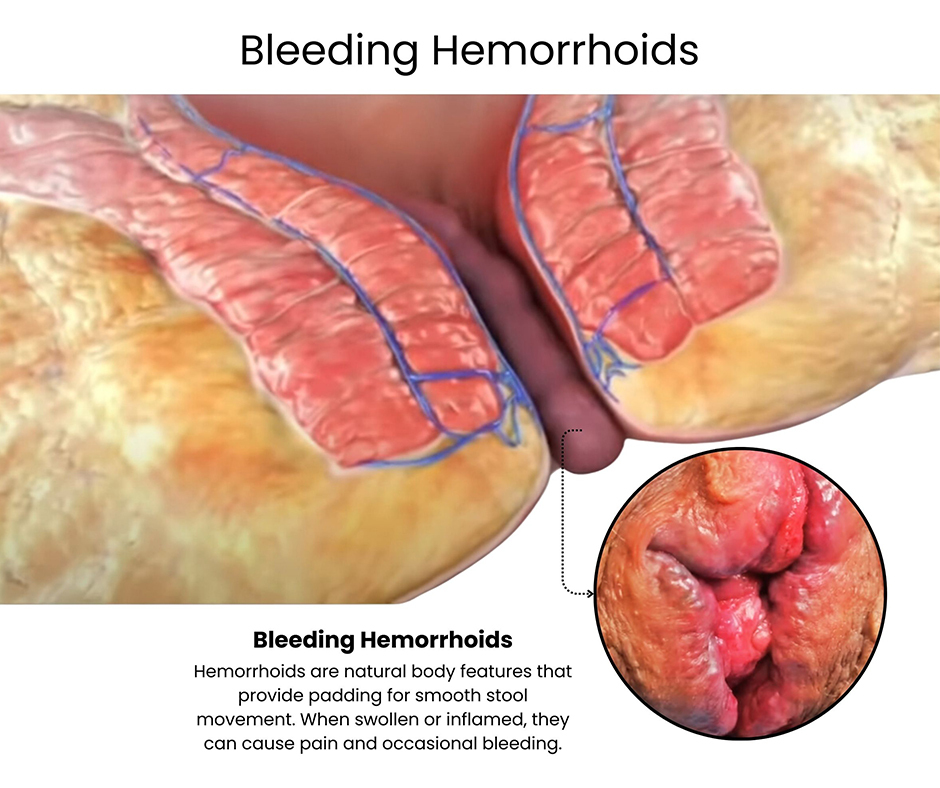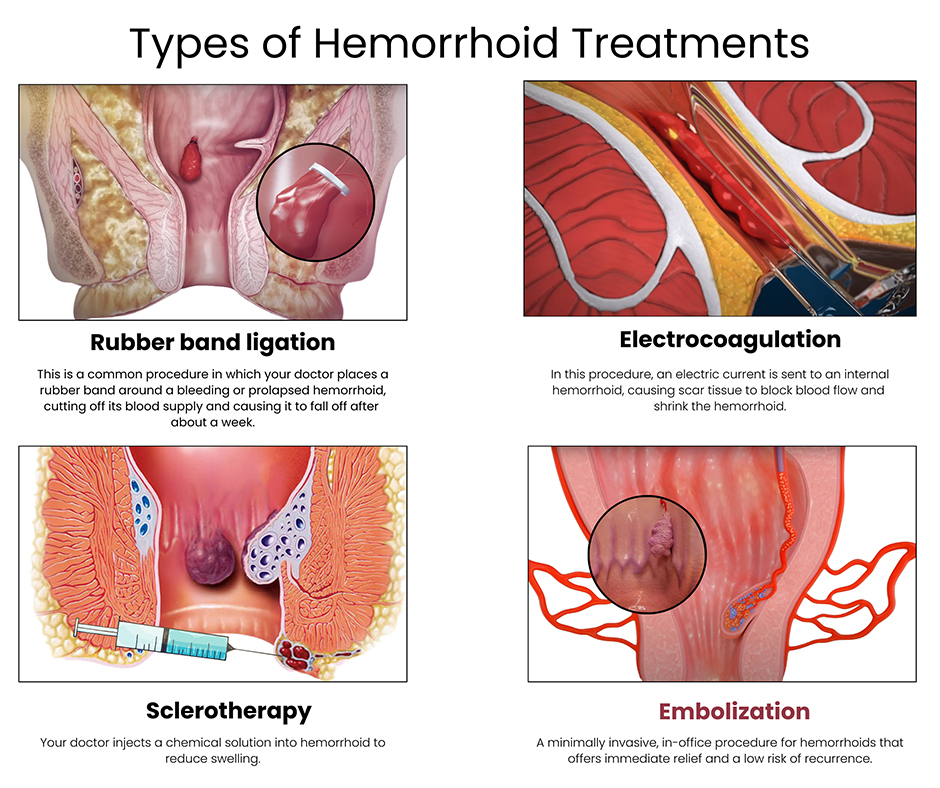Seeing blood on the toilet tissue after you have a bowel movement is one of the ways you can tell if you have serious hemorrhoid issues. To avoid any further complications, seek help at the Downtown Vein & Vascular Center in New York City. Dr. Sergei Sobolevsky offers effective treatment for bleeding hemorrhoids. He’s a vascular expert with decades of experience relieving the pain and suffering caused by hemorrhoids. Call him at the first signs of blood in your stool.
What Are Hemorrhoids?
Hemorrhoids are a normal feature of the body when acting as they should. They serve as padding to help stool move more easily from the body. They are vascular in nature, and when they become swollen or inflamed, you experience pain followed occasionally by bleeding.
Hemorrhoids are either internal or external, but internal hemorrhoids sometimes push outside the rectum. These are called prolapsed hemorrhoids, and they can usually be pushed back in without medical attention. Hemorrhoids are well-known for being itchy and burning in nature. Left untreated, they start to bleed, which then can lead to anemia, blood clots and other consequences.
At the Downtown Vein & Vascular Center in Brooklyn, Dr. Sergei Sobolevsky treats bleeding hemorrhoids. The first step is to visually inspect the area and talk with you about your symptoms.
Why Do Hemorrhoids Bleed?

If you’re having problems with hemorrhoids, you may see a spot or two of blood on the toilet tissue, in the toilet bowl or in the stool itself. This is common and may go away on its own.
A few of the reasons hemorrhoids bleed include:
- Straining during bowel movements
- Having hard, coarse bowel movements
- Wiping excessively
- Sitting on the toilet and pushing for too long
Any of these causes can damage the surface of the hemorrhoid and cause it to bleed. Apart from being uncomfortable, you’re usually not in danger if it’s only a couple of spots of blood. If you feel you have excessive bleeding, though, you need medical attention.
Can I Treat Bleeding Hemorrhoids with Over-the-Counter Medication?
Bleeding hemorrhoids can sometimes be treated with over-the-counter (OTC) medication.
Your doctor may advise you to try different medicines to relieve various symptoms, such as:
- OTC pain relievers like acetaminophen and ibuprofen
- Stool softeners or OTC fiber supplements
- Creams, ointments or suppositories
If your symptoms persist for more than a week or you see more than a few spots of blood, see your doctor as soon as possible. In most cases, in-home treatment relieves the temporary troublesome symptoms.
What Are Other Treatments for Bleeding Hemorrhoids?
You may try other treatments at home for relief of your bleeding hemorrhoids once you’ve seen your doctor and had other conditions like cancer ruled out. Most of these remedies are for softening the stool to ease straining.
A few of the methods to treat hemorrhoids at home include:
- Eating a diet high in fiber
- Drinking plenty of water and non-alcoholic beverages
- Using baby wipes instead of dry toilet tissue
- Avoiding straining during bowel movements
- Not staying on the toilet for more than five minutes at a time
- Sitting in a tub of warm water with Epsom salts
These treatments are preventative. They ease the pain and discomfort of hemorrhoids and the subsequent spotting while you heal. They enable your stool to soften naturally, so that straining becomes less of a problem and those hemorrhoids can do what they’re meant to do.
What Other Conditions Cause Bleeding from the Anus?
Although hemorrhoids are the most common cause of anal bleeding, there are other diagnoses that can cause this, so seek a definitive diagnosis from a hemorrhoid treatment specialist.
Other conditions that may cause a bleeding anus include:
- Anal fissure or tear
- Proctitis inflammation or swelling of the rectum and anus
- Trauma
- Rectal prolapse
- Colon or rectal cancer
- Burst polyps
Any of these conditions can cause you serious health problems in a short period of time. If you don’t seek treatment for hemorrhoids, in addition to the normal irritation, you’re at risk for blood clots, blood loss and infection.

What Other Treatments Are Effective Against Bleeding Hemorrhoids?
Because hemorrhoids are vascular in nature, a doctor specializing in vascular procedures is best suited to treat severely bleeding hemorrhoids that don’t respond to home care.
Various forms of treatment for bleeding hemorrhoids that your doctor may offer include:
- Embolization. One of the safest and most effective treatments for hemorrhoids, embolization is Dr. Sobolevsky’s specialty. It’s a minimally invasive, in-office procedure that’s performed while you’re under twilight sedation. The procedure prevents rectal trauma and incontinence while reducing your risk of recurring hemorrhoids. It improves your symptoms almost immediately.
- Rubber band ligation. A rubber band is placed around the base of the hemorrhoid, which cuts off the blood supply and causes the hemorrhoid to die and fall off.
- Sclerotherapy. This is like rubber band ligation, but relies on a chemical injection put directly into the hemorrhoid to shrink and kill it.
- Electrocoagulation. An electric current is used to kill the tissue.
- Coagulation therapy. A laser of infrared light is used to destroy the hemorrhoid.
If you believe that you have problem hemorrhoids, contact Dr. Sergei Sobolevsky, at the Downtown Vein & Vascular Center at the first sign of symptoms. He and his compassionate staff will help you through this very personal medical problem.

I am Dr. Sergei Sobolevsky, a leading specialist in endovascular medicine. Having performed over 25,000 procedures throughout my career, I bring decades of experience in vascular and interventional radiology to my practice. I obtained my Doctor of Medicine (MD) degree from the University of Colorado School of Medicine in 1997 and completed my specialty clinical training in vascular and interventional radiology at Harvard University.
My dedication to excellence in patient care has been recognized through accolades such as being named a Castle Connolly Top Doctor and inclusion in the Top Doctors New York Metro Area lists for 2020, 2021, 2022, and 2023. With licenses in multiple states, I have also shared my expertise through presentations at various institutions in the US and abroad.
More About Dr. SobolevskyDowntown Vein Treatment Center
480 Court Street, Ste 101
Brooklyn, NY 11231
(718) 787-5559


